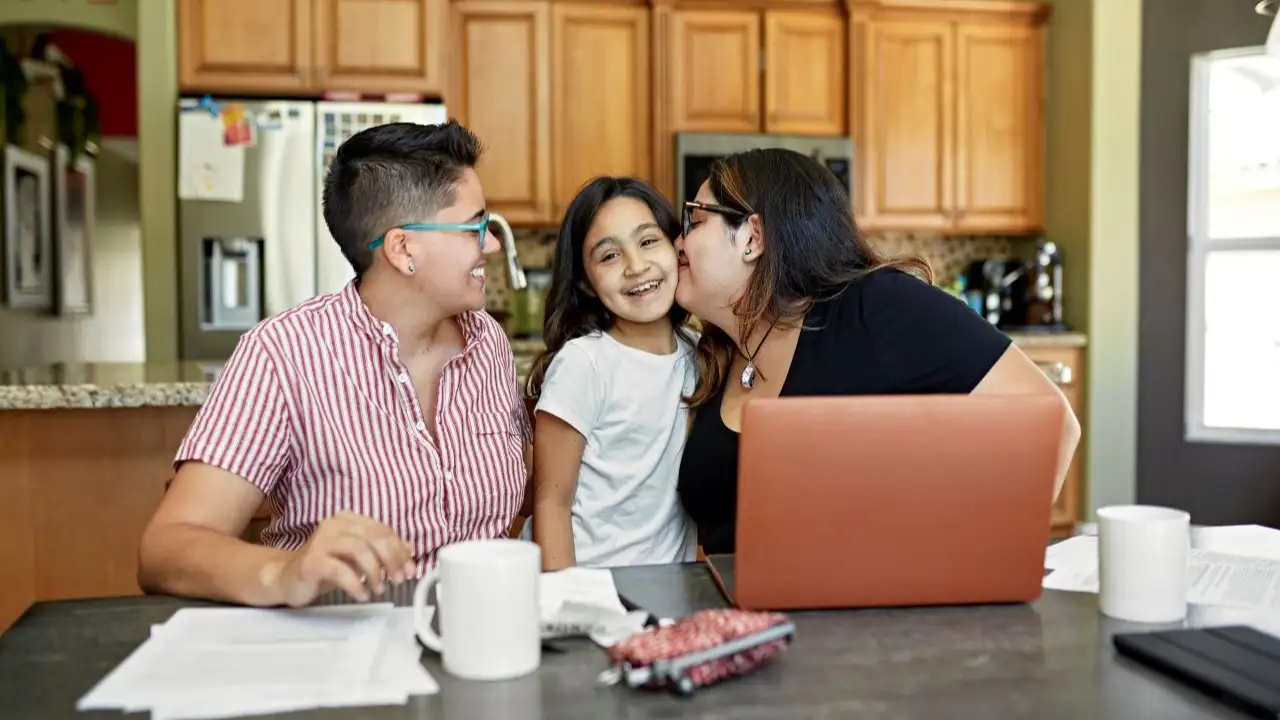
Money Tips & Education
From stress to security: How to reach and maintain financial stability
Nov 28, 2024
Written by
Reviewed by
Key takeaways:
You can have stable finances at any income level, with any credit score.
Financial stability is a journey—not a destination—and you can begin today.
Spending within your means while building your savings is a good way to get started.
Anyone can become financially stable, and that includes you. Just like taking the steps to better health, there are lots of things you can do to get to financial health. Small steps could lead to bigger financial wins. A small emergency fund could grow if you keep adding to it. Paying bills on time could help you maintain your credit profile, which in turn could help you get credit at a lower cost.
It’s never too late to start walking toward a brighter financial future. We’ll show you the steps to financial stability.
What is financial stability and why is it important?
Financial security and stability can mean a lot of different things to different people. You might consider yourself financially stable when the signs of financial progress are multiplying. For instance, you:
Earn a consistent income
Build a strong credit score
Are able to pay bills on time
Have a healthy emergency savings fund
Handle debt responsibly
Have positive cash flow each month
How can you become financially stable?
It’s possible to become financially stable at any income level as long as you follow some key ideas:
Take small steps. Financial stability doesn’t happen overnight. Commit to small steps for two reasons: they’ll carry you to your goal and help you develop good financial habits that last.
Use an app: Free apps such as the Achieve MoLO app make it easy to see how much money is coming in and going out, so you can manage your money better and have money left over each month.
Make a budget. Simple budgeting can give you a roadmap for small steps to take. A budget can tell you which expenses you can trim, or how much extra you need to earn to pay off debt early.
Set goals. Create small goals as well as larger ones, so you’ll have a target to aim for. If your goal is to reduce debt or save more, you could try a no-spend November.
Save for an emergency. Everyone has surprise expenses. An emergency fund can help you stay out of debt when they happen.
What should I do if I'm already in a lot of debt?
The solution to your debt depends on the details of your situation.
Credit counseling if you feel like you have enough money but you want to learn how to manage it better.
Debt consolidation loan if your credit is good enough to qualify for a new loan with a lower interest rate compared to what you’re paying, and you can afford to fully repay your debts.
Debt resolution if you have a financial hardship and can’t afford to fully repay your debts. You, or a professional debt resolution company, can negotiate with your creditors and ask them to accept a lower amount.
How much should I have saved for emergencies?
The truth is that anything you save will help. Not all emergencies are large, after all. Financial planning pros recommend saving between three and six months’ worth of your regular expenses.
That’s a lot of money, but remember—that’s a long-term goal to work toward, not something you need to accomplish this minute. Here’s a path to savings that you could consider:
Goal #1: Get $100 in the bank. Pat yourself on the back, because now you’re on your way.
Goal #2: Build your savings up to $500. Now you could probably cover a flat tire emergency and still have money left over.
Goal #3: Keep adding to your cash stash until you have enough to cover an entire month’s worth of expenses, including all of your bills and food. This is enough to handle bigger financial events that come along.
Goal #4: Don’t stop now. Aim for enough money to pay for everything for three months. You’re in great shape now and can start making bigger plans for your money.
All this time, you may be dipping into your savings periodically to cover unexpected expenses. That’s okay. It’s what this fund is here for. But every time you need to raid your fund, immediately start building it back up again.
How to stay financially stable
Becoming financially stable isn’t really a destination. It’s more of a journey. Most of the steps you take to gain control of your finances are the same ones that could help you stay financially stable.
Savings tips. Always keep an eye out for new savings tips and tricks you can try, including new budgeting tools. You might just find one that works really well for you.
Emergency fund. Keep saving for emergencies so you can continue covering life curve balls without relying on debt.
New debt. Don’t take out new debt unless you really need it. It’s not worth the hassle of backtracking on your hard-won progress.
How to feel less overwhelmed
Don’t worry if you’re not sure what you should do yet. You don’t need to have everything lined up at once. In fact, it’s often best to choose one thing to improve and focus on that until you’re ready to move on to the next thing to work on. Here are some other strategies to help you reduce financial stress:
Take a debt quiz. Answer a few questions to find out how you’re doing in terms of your debt, cash flow, financial risks and goals. The quiz will give you a personalized Debt Fit™ Score as well as suggestions for what you can do to improve your financial stability.
Build self-care into your budget, such as for therapy or a gym membership (only if you’ll use it).
Create small milestones to celebrate, such as a reward for every $100 you save.
Try focusing on healthy habits, like getting enough sleep and eating healthy meals.
Grow your financial confidence by learning about your money management options.
Pat yourself on the back for improving your finances rather than stressing over what you’re still working on.
Get personalized financial help and debt solutions from financial planners or credit counselors.
Written by
Lindsay is a writer for Achieve. She's passionate about helping people learn how to manage their money better so that they can live the life they want. She enjoys outdoor adventures, reading, and learning new languages and hobbies.
Reviewed by
Jill is a personal finance editor at Achieve. For more than 10 years, she has been writing and editing helpful content on everything that touches a person’s finances, from Medicare to retirement plan rollovers to creating a spending budget.
Frequently asked questions
Can you be financially stable with a low income?
Yes, you can be financially stable even on a low income once you’ve built up some savings for emergencies and you come up with ways to spend less than you earn in most months.
Can you reach financial stability with a low credit score?
Absolutely. Financial stability has more to do with how much you earn and spend each month than it does with your credit score. A low credit score might make it harder to borrow money with affordable terms when you need it, but you can save up in advance for emergencies as a workaround. The bottom line is that a good credit score won’t buy groceries. Prioritizing your financial health puts you in the best position to improve your credit standing naturally.
What are the best apps for tracking spending and saving money?
The best budgeting and money management app is the one you’re able to stick with. That’s why it’s a great idea to try out several apps to see which ones you like. The Achieve MoLO app has helped many people manage their money better and have more “money left over” each month.
Related Articles
Some credit checks affect your score, but others don’t, even from the same lender. We’ll explain when and why credit checks can affect your credit.
Myth-busting: you don’t need to carry a credit card balance to have good credit! Learn how credit utilization affects credit scores.
Ready to take control of your money? Learn what a budget can do for you and how to make one.
Some credit checks affect your score, but others don’t, even from the same lender. We’ll explain when and why credit checks can affect your credit.
Myth-busting: you don’t need to carry a credit card balance to have good credit! Learn how credit utilization affects credit scores.
Ready to take control of your money? Learn what a budget can do for you and how to make one.


